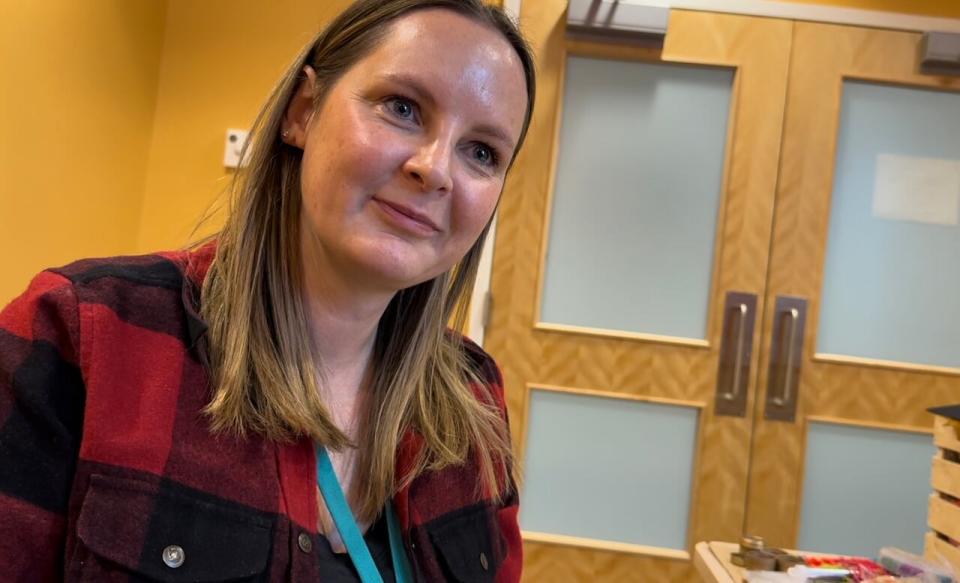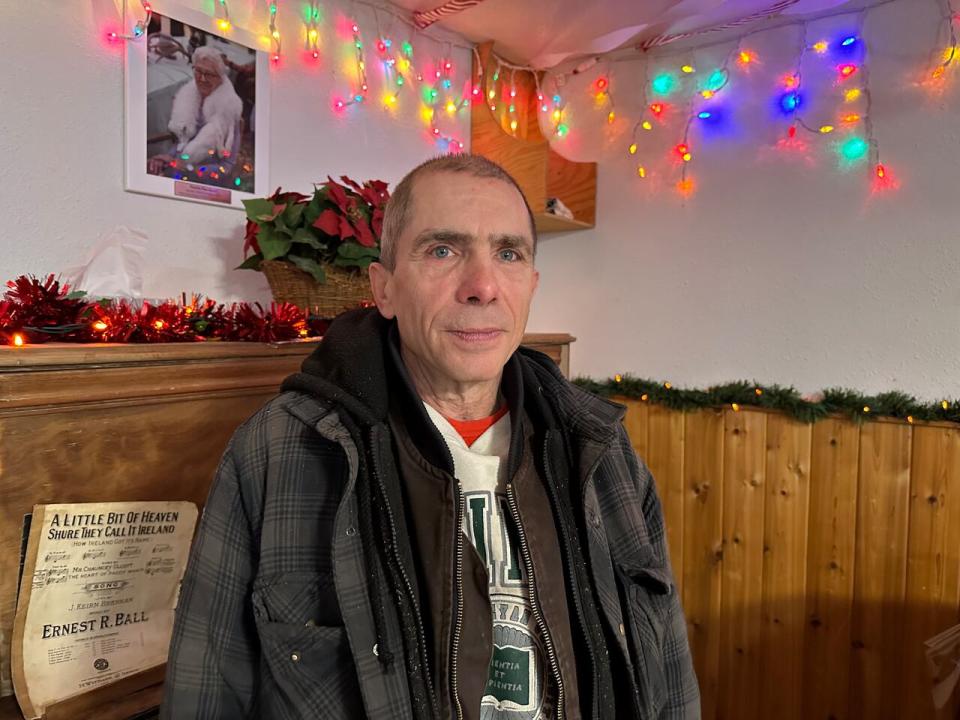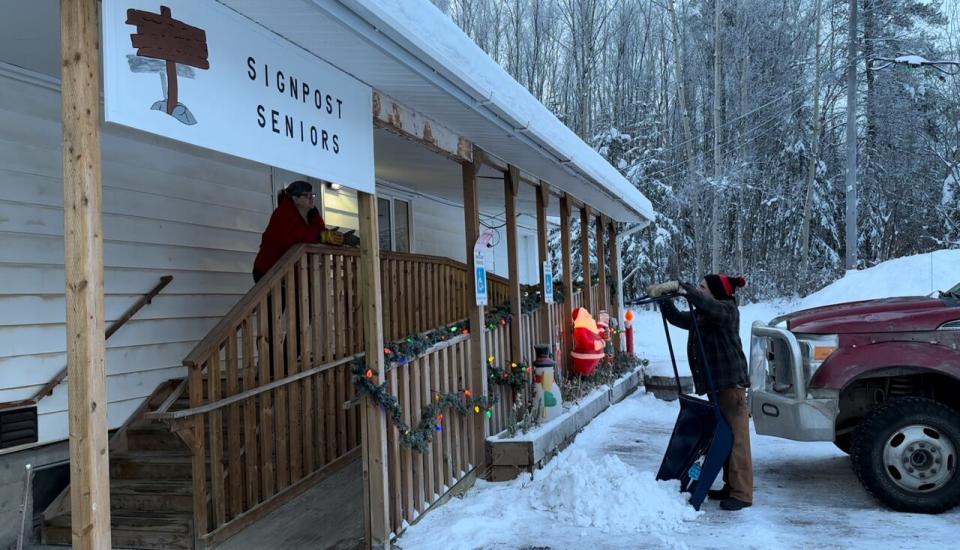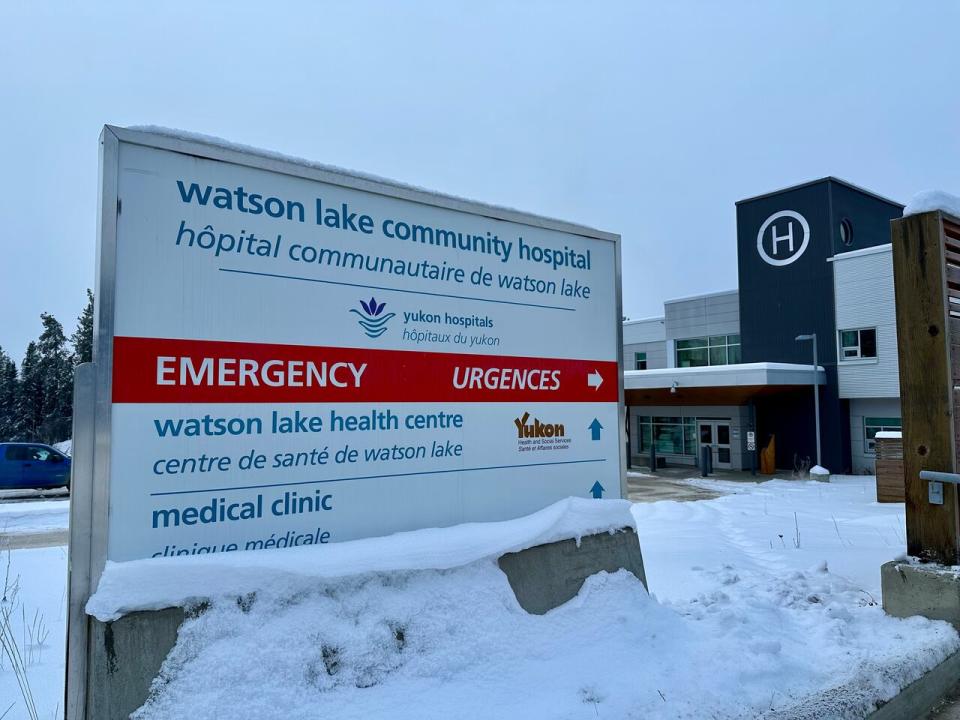People in Watson Lake, Yukon, wonder what happened to their promised long-term care beds

The cancellation of previously announced plans to create two long-term care beds in Watson Lake, Yukon, has doctors and residents in town wondering what happened.
"We were undergoing a process to make them a little bit more comfortable, make it a little bit more homey," said Dr. Lindsey Campbell, walking into one of the rooms at the local hospital that was earmarked to be converted from an in-patient bed to long-term care. She pointed out plans to paint the walls and bring in new furniture.
Campbell said it came as a surprise to her and the other local doctors when Yukon's health minister told the Legislative Assembly last month that plans for those beds were called off. Minister Tracy-Anne McPhee said the decision was made after consultation with the Town of Watson Lake.
"We were told that this was not what they wanted us to pursue," McPhee told the assembly in November. "Certainly, I don't think that anyone expected that it would not be the chosen path by the community."
"Nobody had heard," said Campbell, who added that the need in her community is huge. She said she hears regularly from patients who desperately want long-term care in Watson Lake.

Watson Lake's aging population 'is starting to need a lot more care than we have resources available,' said Dr. Lindsey Campbell, a local physician. (Cheryl Kawaja/CBC)
Currently the only option for people needing that level of care is to be admitted to a facility in Whitehorse, a five-hour drive away.
"We always have usually at least one patient who is admitted to hospital, sometimes two, who are waiting for long-term care," she said. "We're breaking up families, which is one of the most devastating things."
Campbell had hoped those two long-term care beds in Watson Lake would have helped demonstrate the need in her community, possibly leading to a bigger facility.
When adding up the people from Watson Lake who are already in Whitehorse for care, she figures the community could easily fill at least six long-term care beds.
"Right now, we have a lot of patients who are just choosing to stay at home and live at risk, potentially even die at home, rather than being listed for long-term care in Whitehorse — because they don't want to leave the community," said Campbell.
'That's the way it's going, everybody is sent to Whitehorse'
At the Sign Post Senior's Centre in Watson Lake, Bob Close said he doesn't understand where the health minister got that idea that the town didn't want those promised beds.
He said the biggest problem is seniors are being sent far away for care.
"I think it's very, very sad — you don't know what's happening, how many people are going to go visit, they don't know anybody there," he told CBC, adding it costs families hundreds, if not thousands of dollars in travel expenses to make the round trip to Whitehorse for visits.

Bob Close of Watson Lake said the biggest problem is seniors are being sent far away for care. (Cheryl Kawaja/CBC)
"That's the way it's going, everybody is sent to Whitehorse."
Leslie Gonder, dropping into the senior's centre, agreed with Close.
"That just separates everybody from their families," she said.
"There should be something here. I mean, that's what we thought the hospital was being built for, but everybody keeps changing their minds," said Gonder with a sigh.
Close and Gonder pointed out the population of the community is getting older and the need for care is growing.

At the Sign Post Senior's Centre in Watson Lake. According to Statistics Canada, about 35 per cent of the town's population is 55 or older. (Cheryl Kawaja/CBC)
Campbell said she also worries about that.
"The heyday of Watson Lake was kind of the '70s to the '90s, when everybody moved here — and that population now is starting to need a lot more care than we have resources available," she said. Campbell notes there's also only one home care nurse in the town.
According to 2021 census data, Watson Lake's population was 1,133 people and Statistics Canada says 400 of those people are aged 55 and older — that's 35 per cent of the town.
Comparatively, Whitehorse and Dawson City — both of which have long-term care facilities — have proportionally fewer seniors. In Whitehorse, seniors make up 25 per cent of the population and in Dawson City, it's 28 per cent.
Watson Lake MLA Patti McLeod told CBC she believes most people in her community want to see a dedicated facility for long-term care in town, but she acknowledged that beds at the hospital would also help. She said those beds would be a better alternative to having seniors placed in care five hours away where it's hard to visit and stay connected.

The Watson Lake community hospital. (Cheryl Kawaja/CBC)
"My fear, of course, [is] if that becomes good enough. If it was part of a plan to move forward with a long-term facility, great," McLeod said.
CBC requested an interview with the health minister but was sent an email from cabinet communications instead.
"We have heard concerns from the community and the opening of these rooms has been put on hold as we seek to best understand local needs and values," the email stated.
"This will help inform planning for the delivery of future programming."
The government says it is now doing a needs assessment for Watson Lake.


